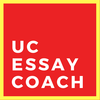|
A recent FairTest tally finds that more than 1,600 four-year schools will not require students to submit ACT/SAT scores to be considered for fall 2022 enrollment. Therefore, more than two-thirds of the 2,330 bachelor-degree institutions in the U.S. should have in place admissions policies which are generally regarded as more inclusive to minority students, including multilingual learners. The list of ACT/SAT-optional and test-blind schools (https://fairtest.org/university/optional) is made available by the National Center for Fair and Open Testing (FairTest). The organization has been at the forefront of the U.S. test-optional admissions movement since the late 1980s. “The coming year’s high school seniors should take advantage of the full range of admissions options,” explained FairTest executive director Bob Schaeffer. “Nearly all the most competitive liberal arts colleges in the country will not require ACT/SAT scores from applicants for fall 2022 seats. Similar policies will also be in place at a majority of public university campuses.” “Study after study—the most recent from the University of California—has shown that eliminating admissions test requirements enhances undergraduate diversity without reducing academic quality,” Schaeffer concluded. “FairTest expects the number of test-optional institutions to continue growing because the policy is a ‘win– win’ for both students and schools.” The UC system announced in July that for fall 2021, without using SAT or ACT scores in admissions, “students from underrepresented racial and ethnic groups comprise 43% of admitted California freshmen, the highest proportion of an incoming undergraduate class and the greatest number in UC history at 36,462.” The major exceptions to the strong test-optional trend, according to FairTest, are public college systems in Deep South states such as Georgia and Florida, U.S. service academies, and some small religious colleges Source: Language Magazine Improving Literacy & Communication
0 Comments
High school seniors rethink taking SAT and ACT tests as colleges modify admission processes9/26/2021 For decades, standardized test scores have been a key benchmark in college admissions decisions. But now, high school students must decide whether they should invest the study time and money in taking the SAT and ACT exams or potentially miss out on a way to shine among applicants. While there has been discussion for some time over the fairness of using the standardized tests in the admissions process, the need to not gather students together in testing rooms during the pandemic made eliminating their use last year a simple decision for most in higher education. The UC and Cal State systems recently announced they will continue to disregard standardized test scores in admissions or scholarship decisions, but many private schools say they have made submitting scores optional. This gray area in the admissions process has left many high schoolers confused about whether they should take the exams. For Orange High School senior Melissa Medina, who is mainly applying to UC and Cal State schools, the decision wasn’t too difficult. The colleges she’s aiming for won’t consider her scores even if she took the exams. “When I heard schools were keeping things test-optional, I was relieved,” Medina said. “I’ve always thought that standardized testing limits the potential of many students, and it places labels on them. Just because you aren’t a good test taker doesn’t mean you’re not capable of doing more.” But the decision isn’t so easy for those interested in private or out-of-state colleges. When universities say they’re “test-optional,” do they really mean it? If schools are using scores if they get them to evaluate applications, there’s still pressure to take the exams and keep open options for their future education, students said. The SAT has long been criticized because studies indicate test-takers from wealthier families tend to score higher. Opponents of the test have called it “discriminatory,” saying the success of students from higher-income backgrounds stems from their ability to pay for test preparation programs – something many low-income families can’t afford to do. Applying to colleges can already be pricey. It costs $55 to register for the SAT and $85 to take the ACT with writing. On top of that, the average college application fee is $43; schools in the UCs system charge $70 per school. Stanford University charges applicants $90. So if a student were to apply to five colleges and take either the SAT or ACT once, they would be looking at hundreds of dollars in fees. And once they get into a school, tuition isn’t cheap. The test-optional movement started when the pandemic first hit. High schoolers had nowhere to take the exams when schools, many of which doubled as testing centers, shut down in March 2020. The tests weren’t adapted to an at-home format, so many of last year’s high school seniors just skipped them. Some traveled to states with fewer restrictions to take the tests, but they were in the minority. Most testing centers reopened in early 2021 for this year’s seniors – allowing them several dates to sit for the SAT or ACT before most private college applications are due in January. They’ll have to choose whether they’ll take the exams or send in applications without scores. Medina said she initially planned to rent a book to study with until she heard providing scores would be optional. Now, she uses her study time to focus more on community volunteering and writing her personal essays. “Now that I don’t have to worry about test scores, I can really just show who I am. I can show what kind of student I am in other areas,” she said. “That says much more than just a score.” But, Orange Lutheran High School senior Adam Hewitt was bummed the public California colleges aren’t considering standardized test scores in their admission decisions. Hewitt earned a near-perfect score on the ACT. Though he’s happy with his GPA, he said “it’s not as high as some other kids’” and was hoping to make up for it with his ACT score. “I feel like I’ve kind of been at a disadvantage for that, but I also completely understand why it’s optional. I fully support it,” Hewitt said. “Because I have friends who I know could do well on it and they weren’t able even to take it.” What colleges are saying Standardized tests are such a huge part of admissions culture that it feels strange to not have to study for them anymore, Medina said. Some of her friends still plan to take the SAT or ACT to see if they do well, she said. If they get a score they’re happy with, they’ll submit it to boost their chances; if they do poorly, they won’t. But for UC hopefuls, this strategy won’t work. Scores will not be looked at when evaluating applications, UC Irvine Executive Director of Admissions Dale Leaman said. “We don’t see their scores at all – no matter what they do or what they’ve taken – when we make our admissions decision,” Leaman said. “The only time you would see those scores is down the line after they’ve accepted our offer of admission.” SAT and ACT scores may still be used to place students in classes or to satisfy general education requirements, Leaman said. The Cal State system has suspended the use of SAT and ACT scores for making admissions decisions until at least fall 2023, spokeswoman Toni Molle said. It may also use scores to place enrolled students in courses. “The CSU is currently evaluating the future use of standardized test scores in first-time freshman admissions with internal and external stakeholders,” Molle said. But there are also private schools and out-of-state schools that some students have on their interest list. The majority have made the tests optional, leaving applicants hoping for a high score to help their admissions chances. Those schools are a big reason Hewitt’s peers continue to take the tests, he said. Occidental College and USC, both located in Los Angeles, are going test-optional this year. “Applicants will not be penalized or put at a disadvantage if they choose not to submit SAT or ACT scores,” USC’s website reads. “USC’s student selection process has always been holistic, and we are confident in our ability to identify student potential using the totality of what’s presented to us.” All eight Ivy League schools and Stanford are also letting applicants choose whether to submit test scores. California Baptist University in Riverside is using the pandemic setbacks as an opportunity to experiment with going “test blind” until fall 2023. “We will collect data to study the impacts, if any, of being ‘test blind’ and then make a longer-term solution after that,” Dean of Admissions Taylor Neece said in an email. More pandemic changes Test-optional hesitancy isn’t all that’s new for this year’s high school seniors hoping to nail down their higher education plans. College visits, that rite of passage for so many, have moved into the virtual sphere. Most universities only just started opening their campuses for students enrolled this fall. “While it may be too soon to state which practices will stay indefinitely, the pandemic helped catalyze innovations in providing virtual support,” said Molle, who works in the Cal State Chancellor’s Office. “In some cases, new practices may be combined with traditional practices to offer more options for incoming students and families to learn about CSU campuses.” The online menu of tours, information sessions, orientation meetings and counselor conferences are here to stay – at least for this year, officials from multiple universities said. “I like that when the time came, colleges knew they needed to change and gave students virtual options. Almost all of them are free, and traveling can be expensive,” Hewitt said. With the help of online programming, seniors can make more informed decisions when choosing where to commit, Hewitt said. Of course, interactive online experiences aren’t the same as physically being on campus, said Hewitt, who has visited several colleges in person. But it’s a step up from just looking at posted photos. Leveling the playing field With no standardized test scores to show and new ways for students to get engaged online, the college admissions process is rapidly changing. “People who come from a family of higher income really had more opportunities to be prepared,” Medina said. “They had more resources to help them with the application process, to help them with the SAT process. But now, that’s off the table.” And though admissions requirements are different, some things will stay the same. Fred Lentz, co-founder of the La Habra-based college admissions nonprofit Advance!, said “the kids that are going to do well beforehand, they’re going to do well afterward.” Lentz, a retired high school teacher who worked with many underrepresented students, said test-taking is a skill that many students don’t have the resources to learn. He said he’s glad that other aspects of an application, such as the personal statement, recommendation letters and extracurricular activities, will carry more weight now that the SAT and ACT are optional. “We had a student, she spent four years sleeping on the floor in the bedroom, studying by flashlight. She got a 4.6, now she’s going to Berkeley,” Lentz said. “Tell me that the SAT and the ACT is a better definition for her chances for success than what I told you.” Source: The Press Enterprise.
|
HoursM-F: 7am - 9pm
|
Telephone+1 613 981 1809
|
|


 RSS Feed
RSS Feed